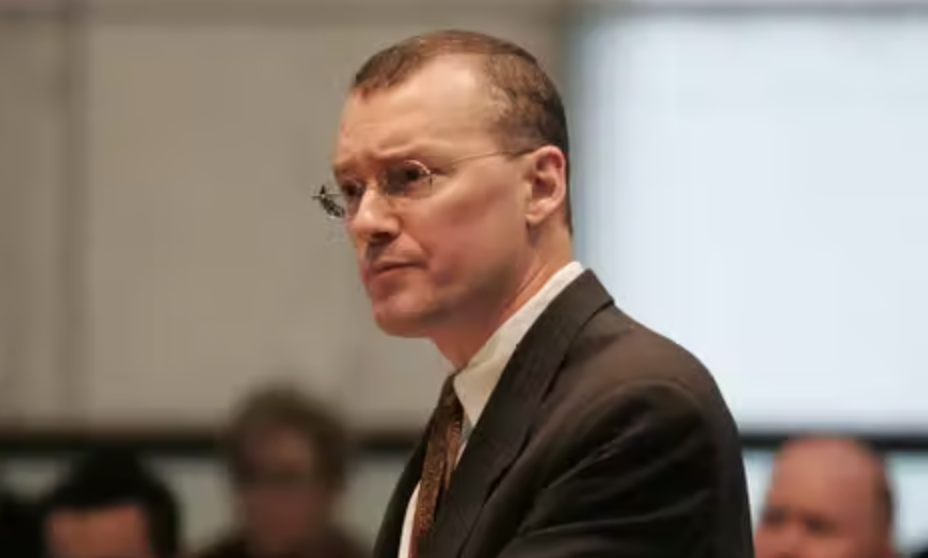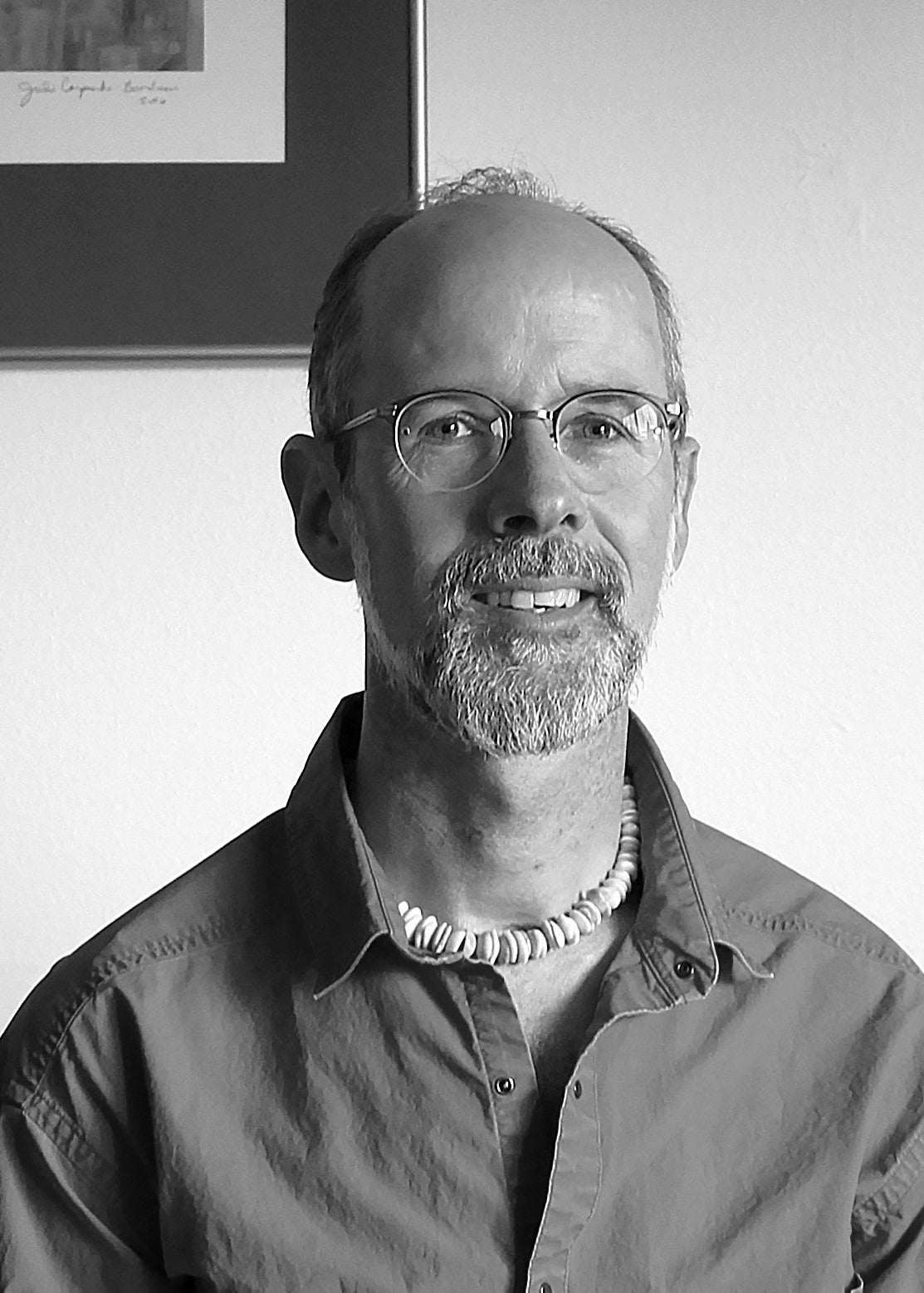Husband of environmentalist who set himself on fire urges others to seize climate action: ‘Choose to live’
Four years before Wynn Alan Bruce self-immolated in front of the Supreme Court, David Buckel took his own life in the same way in Brooklyn. His widower tells Louise Boyle that climate activists should not despair but ‘believe in your own power’


Your support helps us to tell the story
From reproductive rights to climate change to Big Tech, The Independent is on the ground when the story is developing. Whether it's investigating the financials of Elon Musk's pro-Trump PAC or producing our latest documentary, 'The A Word', which shines a light on the American women fighting for reproductive rights, we know how important it is to parse out the facts from the messaging.
At such a critical moment in US history, we need reporters on the ground. Your donation allows us to keep sending journalists to speak to both sides of the story.
The Independent is trusted by Americans across the entire political spectrum. And unlike many other quality news outlets, we choose not to lock Americans out of our reporting and analysis with paywalls. We believe quality journalism should be available to everyone, paid for by those who can afford it.
Your support makes all the difference.On an overcast Friday last month in the nation’s capital, Wynn Alan Bruce stood before the US Supreme Court and set himself on fire. Mr Bruce’s death, on the annual observance of Earth Day, aimed to bring attention to the climate crisis, some of his family and friends later said.
For Terry Kaelber, the stranger’s death struck him “in the gut”.
Four years ago, Mr Kaelber’s husband David Buckel, a renowned lawyer turned environmentalist and expert composter, set fire to himself in Brooklyn’s Prospect Park.
“My gut reaction was I don’t think the Supreme Court would care,” Mr Kaelber told The Independent, during a phone interview last week. “Our institutions have become so disconnected from our humanness. And here is a cry out from this man to try to shake us out of our stupor that's causing us to not look up, and see what's in front of us.”
He continued: “But, for anyone who's considering this, I really believe you would have more of an impact if you and one hundred of your friends chained yourselves to the gates of the Supreme Court than burning yourself up alive. You can continue to do that day after day, try to stop what's going on and cause people to, in fact, look up.”
He said that family and friend’s had been completely blindsided by his late husband’s suicide.
“If [David] had said it to me, I would have said what I'm saying now,” Mr Kaelber added. “What the media focuses on is the act, they're not interested in really digging down into the why. Why did these people feel they had to do this?”
Suicide is complex, and can involve a multitude of reasons unknown to others, experts say. But both Mr Buckel and Mr Bruce highlighted the climate crisis and air pollution, caused by burning of fossil fuels.

Self-immolation as a form of political protest has been historically linked to Buddhist monks during the Vietnam War, and Tibetans protesting Chinese rule. The two Americans’ deaths are believed to be the first self-immolations linked to climate change.
“Most humans on the planet now breathe air made unhealthy by fossil fuels, and many die early deaths as a result – my early death by fossil fuel reflects what we are doing to ourselves,” Mr Buckel, 60, wrote in an email which he sent to several news outlets shortly before his death in April 2018.
Mr Bruce, 50, had also appeared to publicly reference climate change. About a year ago, he updated his earlier Facebook post on climate change with a fire emoji and the date “4/22/2022”. His last post in March referred to clean air, and read: “This is NOT humor. It is ALL about breathing.” It is not known if Mr Bruce, of Boulder, Colorado, left other messages before his death but none have been made public.
It’s possible that Mr Bruce’s decision to self-immolate before the Supreme Court was, in itself, symbolic. In addition to the outrage that has erupted over the leaked draft decision to end Roe v Wade and 50 years of US abortion rights, the Supreme Court will also decide before the end of this session in June on a case with the potential for far-reaching climate impacts.
In West Virginia v EPA, a group of 19 states and fossil fuel firms have asked the court to strip the environmental protection agency of its power to regulate planet-heating emissions from existing coal-fired power plants under the 1970 Clean Air Act.
Mr Buckel saw first-hand the power wielded by the Supreme Court. In the late Nineties, he argued a case against the anti-gay policy of the Boy Scouts of America before the court while serving as senior counsel at Lambda Legal where he fought for LGBT rights and marriage equality.
He was instrumental in taking legal cases into the heartland of America, Mr Kaelber noted. “[David] led that effort, in Iowa and other states, that if we can reach people there, that is strategically really important to changing the hearts and minds of people across the US.”
He led the case for the estate of Brandon Teena, a 21-year-old transgender man who was raped and murdered in Nebraska in 1993, against a small-town sheriff who failed to protect him. The story inspired the Oscar-winning film Boys Don’t Cry.
From an early age, Mr Buckel was committed to wanting to make the world a better place. “And that pretty much drove his life,” Mr Kaelber added.
David Buckel was born in upstate New York and attended the University of Rochester before graduating from Cornell Law School. He met Mr Kaelber when in college and the couple later had a daughter who they raised with a lesbian couple.
“When [David] was first out of college he worked as a home health aide to people who had terrible health challenges. He also worked in a halfway house, helping folks who had mental disabilities to re-enter society,” Mr Kaelber recalled.
He decided to go to law school after volunteering at a legal aid clinic, and while he focused on LGBT issues he could “just as easily been an environmental lawyer”.
“When he left Lambda Legal, he felt like the big challenge facing our society was environmental and what was happening around climate change,” Mr Kaelber said.
“He would often say to me, ‘I'll feel as if my life mattered if when I leave this world, it'll be in a better place, or I will have done something that was a net positive, as opposed to having lived life and just taken.’”
In 2014, Mr Buckel began working at Red Hook Community Farm in Brooklyn, transforming the project into one of the largest compost sites in the US that runs entirely on clean energy.
Mr Kaelber recalled his late husband’s innate ability to make intricate connections between environmental destruction, and problems which blighted communities – income inequality, and the discrimination which turns groups one another.
“That’s why he really believed it’s only in community, working at that level where people get to know each other, that people begin to say, ‘maybe what some people say to divide us isn’t real’.”
At the community farm, Mr Buckel focused on training young people from public housing, Mr Kaelber said. “The guy who took over Red Hook Farms and in his own right has become an important leader in composting and environmental issues, David saw him and saw his great talent”.
That apprentice, Domingo Morales, has spoken about the impact that Mr Buckel had on him. “He touched a lot of people,” he told The New York Times in 2018. “We didn’t come from privilege, we came from the projects. He was a light in a lot of our lives.”
Mr Kaelber added: “We have a daughter and some of his legacy is helping her see the importance of living your life [being] aware of caring about your community and giving back. At a personal level, of course, is his impact on me but I do think he had a profound impact on LGBT rights.”
Ultimately, he did not want his late partner’s suicide to be his legacy, he said. “I think that sends the wrong message. But to the degree his death can help wake people up, I do hope that people understand that he touched so many lives. Now he’s gone so he can’t continue to do that.”
Mr Kaelber urged people not to give into feelings of despair around the climate crisis.
“Believe in your own power, don’t surrender to feeling like you have no impact,” he said. “Impact comes from banding together with your community, your family, going out onto the streets [and] asking people to really think about what’s going on.
“If we all surrender to despair, that's the choice we make. These are all choices. Choose to live, and to do it in a way that really reflects what's in your heart. I think if people do that, we will want to care for the environment. We not want to have all the craziness that goes on. I know that sounds completely utopian – but I don't know what the alternative is.”
If you are experiencing feelings of distress and isolation, or are struggling to cope, The Samaritans offers support; you can speak to someone for free over the phone, in confidence, on 116 123 (UK and ROI), email jo@samaritans.org, or visit the Samaritans website to find details of your nearest branch.
If you are based in the USA, and you or someone you know needs mental health assistance right now, call National Suicide Prevention Helpline on 1-800-273-TALK (8255). The Helpline is a free, confidential crisis hotline that is available to everyone 24 hours a day, seven days a week.
If you are in another country, you can go to www.befrienders.org to find a helpline near you.